Business
Lagos Govt’s 2025 Vision: Green Line Rail Among Top Infrastructure Priorities

The Lagos State Government has earmarked the development of the 68km Green Line rail—connecting Marina to the Lekki Free Trade Zone—as a top infrastructure priority for 2025. This project is part of the state’s N1.052 trillion development budget aimed at enhancing transportation and urban mobility.
Lagos State Commissioner for Economic Planning and Budget, Ope George, revealed this during the ministry’s Budget Analysis press conference in Alausa, Ikeja. He highlighted that alongside the Green Line, the government is also accelerating work on the second phase of the Lagos Rail Mass Transit (LRMT) Blue Line from Mile 2 to Okokomaiko.
Key Infrastructure Projects for 2025
In addition to rail expansion, the 2025 budget includes:
- Road Projects: Completion of the Lagos-Badagry Expressway, dualization of Ojo Road and Baale Adeyemi in Ojo, and construction of the Lekki-Epe (Orisa) Bridge.
- Urban Mobility Enhancements: The rehabilitation of major roads, including Samuel Ekundayo/Toga Road in Badagry, Abaranje Road in Alimosho, and Adamo-Akanun-Agunfoye Lugbusi Roads in Ikorodu.
- Public Transport Upgrades: Completion of the Abule Egba and Ajah Bus Terminals, construction of the Iyana-Ipaja Bus Terminal, and development of the Opebi Link Bridge to Maryland to ease traffic congestion.
- Marine & Aviation Development: Completion of 13 new jetties, upgrades to existing ones, and preliminary technical studies for the 4th Mainland Bridge and Lekki-Epe Airport Road.
Strategic Transport Expansion
The Green Line rail is a critical component of the Lagos Strategic Transport Master Plan, which envisions six Light Rail Transit (LRT) lines to boost connectivity and reduce congestion. To advance this initiative, the Lagos State Government recently signed an MoU with the Federal Government’s Ministry of Finance Incorporated (MOFI) to initiate exploratory work.
A review of the 2025 Federal Government’s Final Budget Proposal revealed that N146.14 billion has been allocated as counterpart funding for the Green Line Metro Rail Project. This investment will be managed by MOFI on behalf of the Ministry of Transport.
Additionally, in September 2024, Lagos formalized an agreement with MOFI and China Harbour Engineering Company (CHEC) to design, finance, and operate the Green Line—marking a major step in modernizing the state’s transport network and driving economic growth.
Business
Lagos Pushes Urban Agriculture Agenda, Sensitises Key Stakeholders
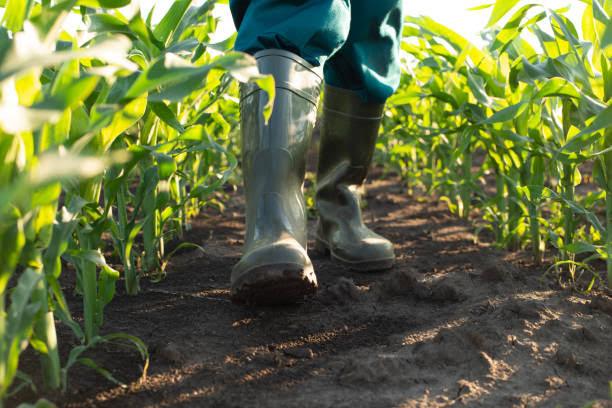
The Lagos State Government, through the State Agricultural Development Authority (LSADA), has called for the adoption of integrated urban farming solutions to address food insecurity and promote sustainable food systems across the state.
This call was made during a one-day Stakeholders’ Workshop on Urban Agriculture held at the Fresh Food Hub, Idi-Oro, Mushin. The workshop aimed to sensitise Heads of Agriculture Units from the 57 Local Government and Local Council Development Areas (LCDAs), as well as environmental health officers, on the strategic importance of urban agriculture.
Commissioner for Agriculture and Food Systems, Ms. Abisola Olusanya—represented by Dr. Rasheed Macaulay, Director of Veterinary Services—stressed the urgency of promoting urban agricultural land use and increasing grassroots awareness. She said that cascading this knowledge with the right education and technical support was vital for building a sustainable food future.
“Integrating agriculture into urban landscapes reduces reliance on external food sources, cuts down transportation costs, and improves access to fresh, nutritious produce,” Olusanya said. “The Lagos State Government, through the Ministry of Agriculture and Food Systems and its agencies, is fully committed to this vision. We are developing enabling policies, strengthening extension services, supporting innovation, and partnering with local councils to scale up urban farming across the state.”
She also noted that urban agriculture must evolve from small pilot schemes to being embedded in schools, homes, markets, and faith-based institutions.
LSADA Programme Manager, Mr. Alade Aliru, highlighted the benefits of cultivating food close to where it is consumed. He explained that this approach reduces the environmental impact of food transportation while fostering greener, healthier cities.
“This workshop is designed to engage stakeholders on the opportunities and practical strategies for implementing urban agriculture in their local communities,” Aliru said. “From backyard gardens to vertical farms and container planting, urban agriculture is becoming a key part of our evolving food ecosystem.”
Also speaking at the event, the Permanent Secretary of the Ministry, Emmanuel Fatai Audu—represented by Director of Fisheries, Mr. Daisi Agarrey—emphasized that rapid urbanisation has placed immense pressure on land and food systems. He described urban farming as a strategic response.
“Urban agriculture is no longer a choice—it is a necessity,” Audu stated. “It’s not just about growing food; it’s about building healthier communities, greener environments, and resilient livelihoods.”
The workshop forms part of Lagos State’s broader commitment to sustainable development and environmental resilience through innovative agricultural practices.
Business
Sanwo-Olu Gets EU Nod for €410m ‘Omi Eko’ Urban Water Initiative

Lagos State Governor, Babajide Sanwo-Olu, on Thursday hosted the European Union (EU) Ambassador to Nigeria and ECOWAS, Mr. Gautier Mignot, for a high-level meeting focused on strengthening Lagos-EU cooperation and multilateral business relations.
The meeting, held at the State House in Marina, centred around the landmark ‘Omi Eko’ initiative — a transformative project aimed at upgrading Lagos’ inland waterways into a world-class transportation system.
Estimated at €410 million, the ‘Omi Eko’ project is being co-financed through public-private partnerships involving the EU, French Development Agency (AFD), European Investment Bank (EIB), and the Lagos State Government. All partners will jointly oversee its execution.
Governor Sanwo-Olu expressed satisfaction with the project’s progress following the completion of feasibility studies and confirmed that construction is slated to begin next month.
“With the ‘Omi Eko’ project, we are poised to expand our transportation infrastructure and provide residents with faster, more efficient travel options. This initiative includes the construction of new terminals, deployment of high-capacity electric boats, and enhanced safety systems on our waterways,” Sanwo-Olu stated.
“This is a legacy project that aligns with our vision of an integrated and sustainable urban mobility network. We aim to begin implementation promptly and make visible progress within our administration’s tenure.”
The Governor added that the project would unlock the economic potential of Lagos’ aquatic resources, boost tourism, attract foreign investment, and create jobs. He urged all stakeholders to ensure the timely release of funds and expedite the procurement of construction materials.
Sanwo-Olu also lauded the EU-owned Infrastructure Development Bank’s plans to enter Nigeria’s financial ecosystem, describing it as a welcome development that would further stimulate economic growth.
Ambassador Mignot, leading the EU delegation from Abuja, confirmed the EU’s full commitment to the project. “We bring good news from the EIB and AFD — we are ready to sign the necessary agreements to launch the €410 million ‘Omi Eko’ project. A formal groundbreaking ceremony is scheduled for the end of June,” he announced.
He praised Lagos State’s dedication to its EU partnership, noting that a significant share of European economic activity in Nigeria is concentrated in Lagos. Mignot also revealed plans to strengthen economic ties through a revitalized European Chamber of Commerce and more strategic investment partnerships, especially in the tech sector, where German agency GIZ is already active.
Business
Lagos’ GDP Soars to $259B, Becomes Africa’s 2nd Largest City Economy
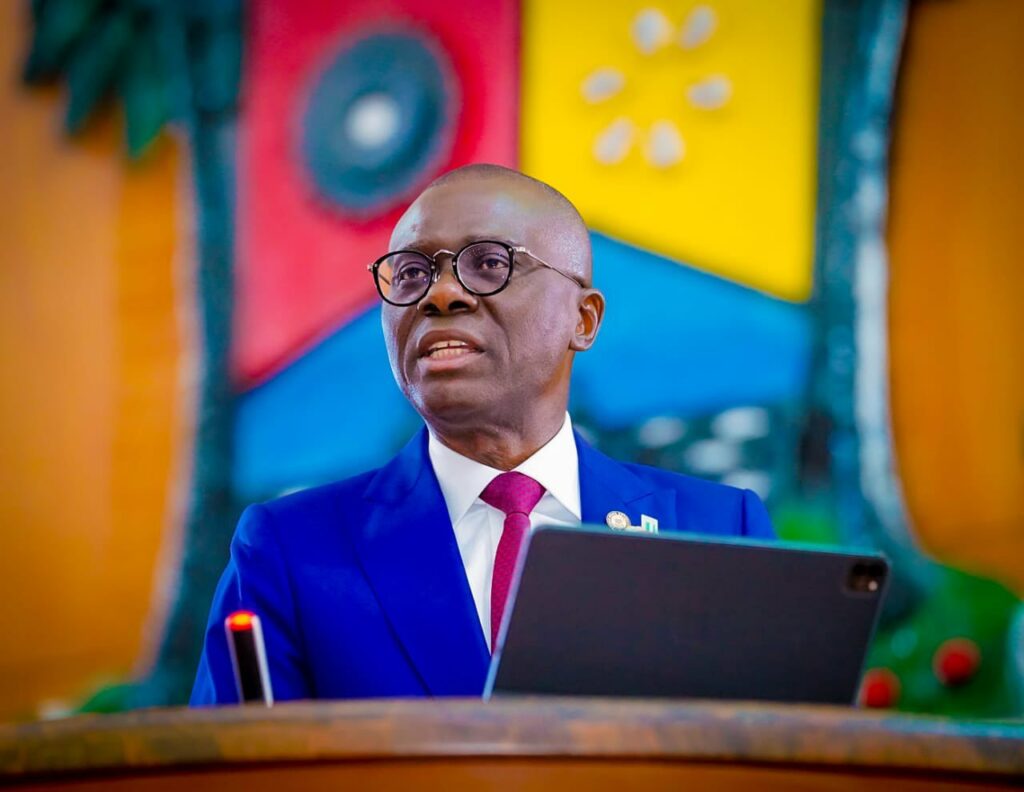
Lagos State has solidified its status as one of Africa’s top economic powerhouses, with its Gross Domestic Product (GDP) reaching an impressive $259 billion based on Purchasing Power Parity (PPP). This milestone places Lagos as the second-largest city economy on the continent, following Cairo, Egypt.
The announcement was made during the official launch of the Lagos Economic Development Update (LEDU) 2025 on Wednesday. According to the report, Lagos State’s GDP stood at $259.75 billion in 2023, reinforcing its role as Nigeria’s commercial and financial hub.
Lagos Economic Growth in 2024
Lagos recorded significant economic growth in the first half of 2024, expanding to ₦27.38 trillion, up from ₦19.65 trillion in 2023. This strong performance underscores the state’s resilience amid economic reforms and ongoing infrastructure development.
Despite this expansion, Lagos’ tax-to-GDP ratio remains low at 2.3%, highlighting the need for improved revenue generation strategies.
Key Lagos 2025 Budget Projections
Looking ahead, Lagos State is poised for further economic expansion in 2025, with the following key projections:
- GDP Growth: Expected to increase from ₦54.77 trillion in 2024 to ₦66.47 trillion in 2025, with real GDP growth estimated between 5.02% and 6.49%.
- Sectoral Growth: The services sector will continue leading growth, supported by agriculture and industrial production. Stability in fuel prices and exchange rates is expected to enhance economic performance.
- Inflation Forecast: Headline inflation is projected at 34.2%, while food inflation may rise slightly to 34.9%.
- Revenue Projections: The Lagos State Government aims to generate ₦2.79 trillion in revenue for 2025, emphasizing fiscal discipline and revenue diversification.
Investment & Business Opportunities in Lagos
As Nigeria’s largest economy, Lagos remains a prime destination for investors, particularly in infrastructure, technology, real estate, and manufacturing. However, challenges such as inflation, forex volatility, and infrastructure gaps must be addressed to ensure long-term growth.
Sanwo-Olu Grants Approval for Construction of First Bank’s New Headquarters
Upcoming Changes: Nigeria’s GDP Rebasing
The National Bureau of Statistics (NBS) is set to rebase Nigeria’s GDP in 2025, shifting the base year from 2010 to 2019. This update will enhance economic measurement by incorporating:
- Digital economy growth (e-commerce, fintech, and online services).
- Emerging industries (modular refineries, pension funds, and quarrying).
- Social sector activities (NHIS and NSITF programs).
Lagos’ economic trajectory remains strong, positioning it as a key player in Africa’s evolving financial landscape.
-
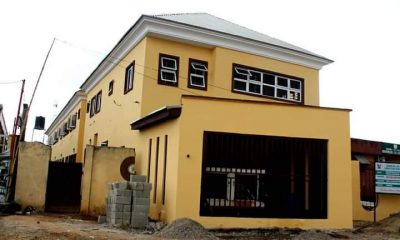
 Conference 577 months ago
Conference 577 months agoAgbado/Oke-Odo LCDA: A Hub of Transformation Under Chairman Famuyiwa
-
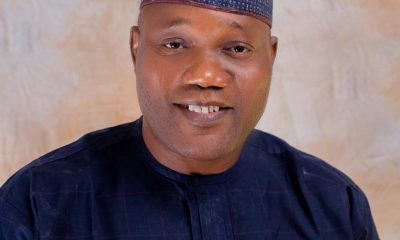
 Conference 5710 months ago
Conference 5710 months agoOjokoro LCDA: A Hub of Development and Progress
-

 entertainment11 months ago
entertainment11 months agoRHOLagos Season 3 Unveiled: Sophia Momodu, Dabota Lawson & Adeola Diadem Join the Drama!
-

 news11 months ago
news11 months agoThe Future of Football: Top Academies in Lagos Shaping Nigeria’s Next Stars
-
Conference 5710 months ago
Agege Local Government: A Thriving Hub of Progress, Leadership, and Growth
-
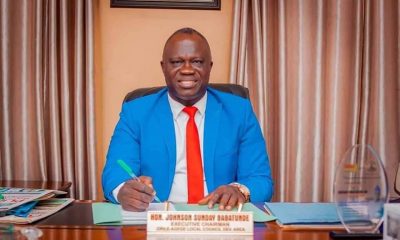
 Conference 5710 months ago
Conference 5710 months agoOrile Agege LCDA: A Model of Growth and Development in Lagos
-
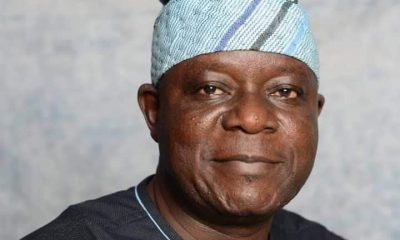
 Conference 577 months ago
Conference 577 months agoTransforming Communities: Inside the Leadership of Igando-Ikotun LCDA
-
lifestyle11 months ago
Rasaq Okoya at 85: Celebrating the Legacy of a Nigerian Business Icon




